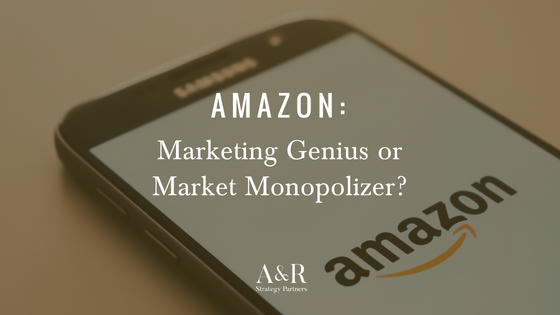Consumers have high expectations and your business’ growth depends on the experience of your new and loyal customers. Amazon is growing at a rapid rate and therefore provides a compelling example of the current best practices in consumers’ purchasing decisions and brand loyalty.
The Biggest Online Private-label business
Private-Label goods are sold directly by a retailer usually at a lower price than comparable brands. Any retailer looks at what is selling well and often works directly with a manufacturer to offer it for less to consumers.
Amazon is not unique in developing private label brands, as retailers have been doing this for years. For example, Walmart sells Sam’s Cola and Kirkland products are available for purchase only at Costco. Amazon has approximately 100 private label brands for sale and more than 60 of these brands have been introduced in the past year.
AmazonBasics
Around 2009, Amazon introduced a new private label brand, AmazonBasics. AmazonBasics offers products such as power cords, cables, bath towels, bed sheets and batteries for approximately 30% less than similar branded items. In only a few years, AmazonBasics took almost one-third of their online battery business. They outsold both Duracell and Energizer.
Proactive Customer Influence or Great Marketing?
There are currently many ways that Amazon may be steering customers to their private-label brands and away from competitive products:
- Featuring Exclusivity – some of Amazon’s private label products can only be purchased by Amazon Prime members (encourages membership)
- Enabling Voice Technology- ask Amazon’s Alexa to buy batteries and you are only offered one choice (AmazonBasics)
- Providing Lower prices
- Optimizing word-search algorithms
- Analyzing competitors’ sales data
- Utilizing Customers’ reviews and feedback
Competitive advantage
Amazon was originally created to give everyone an opportunity to sell but some believe that the online marketplace has shifted towards being a direct competitor rather than an eager assistant. Here are some ways that Amazon has the upper hand in the online consumer market:
Amazon…
- has access to data from their platform that no one else has
- has the ability to put its private-label products in front of customers and make sure that they appear quickly in a search
- has the emails of the consumers who are searching on their site
- can target consumers by emailing them directly or using pop-up ads on other websites
- can conduct regional or one-day price tests
- can look at customer feedback about a product and create a better version of it as a private-label brand
Amazon’s marketplace behavior
Consumers and businesses are watching Amazon as they utilize their platform to promote products and debatably monopolize the market. Some wonder if Amazon will face future legal battles; however others believe consumers are only helped by Amazon’s business practices.
The future of Amazon
According to The New York Times, it is predicted that almost half of all online shopping in the United States will be conducted on Amazon’s platform in the next couple of years. Amazon has the possibility to more than double revenue from its private-label brands to $25 billion in the next few years, which is what Macy’s total revenue was last year.
Whether you are a loyal online Amazon consumer, a direct competitor or a critic of Amazon’s business model, Amazon provides valuable insights for all consumer goods and brand leaders. Are you incorporating Amazon’s private label plans into your business strategies? Are you utilizing customer data to improve your website? Are you focused on making sure your customer’s experience is optimized on your site? Amazon is creating new best practices in the consumer marketplace rapidly. It’s vital that your business understands the changing face of the competitive landscape and develops an educated and thoughtful business strategy to keep your company’s growth trajectory going upwards.

